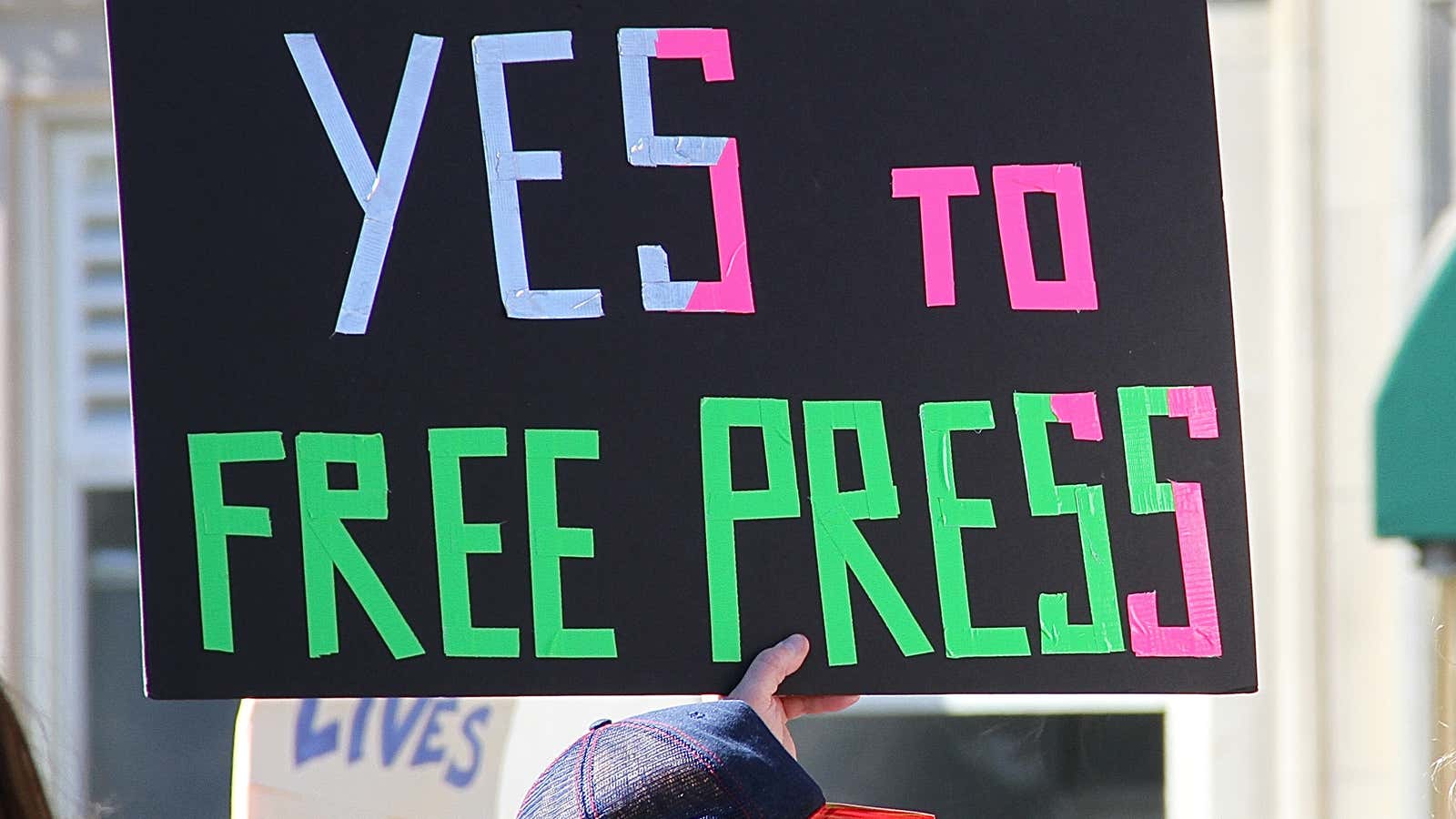While speaking to Politico in December, Press Secretary Sean Spicer stated that he would not ban media outlets. Yet on Friday, that’s exactly what happened. Journalists from The New York Times, BuzzFeed News, CNN, The Los Angeles Times, Politico, the BBC, and The Huffington Post were all barred from an off-camera White House briefing also known as a gaggle.
President Trump also took his platform at the Conservative Political Action Conference last week to disparage the media by labeling them as the “enemy of the people.”
Unfortunately, these assaults on the media have become the norm. On Trump’s first official day in office, rather than working to unite a deeply divided nation, he instead chose to condemn the media during his visit to the Central Intelligence Agency, calling journalists “among the most dishonest human beings on earth” and stating that he has “a running war with the media.”
Trump has even questioned the intentions of the press by falsely claiming that they deliberately underreported terrorist attacks.
These tactics to intimidate the media by the Trump administration are unprecedented in modern United States history.
This must stop.
Trump’s actions and comments as president come as no surprise to those who followed his contentious relationship with the media during his campaign. President Trump has repeatedly threatened to sue newspapers for publishing stories that he deems “purposely negative” and has pledged to reform U.S. libel laws so that “when The New York Times or The Washington Post writes a hit piece, we can sue them.”
Trump has also singled out journalists. Just a few days prior to his inauguration, Trump berated CNN’s Jim Acosta over his network’s coverage of an unsubstantiated dossier claiming controversial ties to Russia. The exchange was so outrageous that many of Mr. Acosta’s peers came to his defense and the defense of CNN. Even Fox News’ Shepard Smith, a major competitor, used his show as a platform to defend CNN’s journalistic standards and to call out President Trump for “belittling and delegitimizing” a news organization that followed those standards.
When Trump is not behind a microphone, he uses social media to criticize the press. In a series of tweets, just a day after Trump referred to the media as the “opposition party,” he accused The New York Times and The Washington Post of false reporting and questioned the number of subscribers of both publications.
Vilifying the media is not just alarming for journalists in the United States; it is also setting a dangerous precedent for how international leaders should interact with the media in their respective countries. Since 2013, the United States’ ranking on our World Press Freedom Index has fallen by 14 points. It is now ranked 41 out of 180 countries. During President Barack Obama’s administration, we criticized the government’s obsessive control of information, war on whistleblowers, and lack of transparency. Given Trump’s assaults on the press, it is concerning that these issues will worsen, potentially undermining his administration’s ability to effectively champion press freedom internationally.
The US government has a key role in negotiating for the release of journalists held abroad. For example, the State Department used diplomatic channels to advocate for the release of The Washington Post’s Jason Rezaian, who was freed from Iran’s notorious Evin prison on January 16, 2016 after 544 days. Such diplomatic channels will need to be kept open to build on that success and bring Austin Tice, an American journalist held captive in Syria since August 2012, safely back home.
The crucial part that the previous White House and State Department played in securing Jason Rezaian’s safe return underscores the need for President Trump to change how he interacts with journalists and media organizations. When a journalist is taken hostage by a hostile government, terrorist group, or criminal organization, all stakeholders must work together to ensure his or her safe return.
Trump is no longer campaigning. He is the president of all Americans, including journalists. Therefore, he must fiercely protect and defend the First Amendment, most importantly the tenet ensuring the freedom of the press, which is key to any functioning democracy. And we‚ journalists and citizens alike—must rally and push back against attacks on press freedom.
